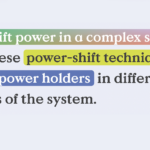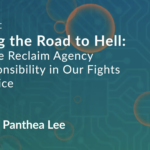
CHELSEA MAULDIN
Public Policy Lab
NATALIA RADYWYL
Today
[s2If is_user_logged_in()]DOWNLOAD PDF
[/s2If]
This wildcard session was a conference-wide co-creation activity. Together, EPIC attendees reflected on the dynamic relationship between resilience and power. Then, through a facilitated, real-time activity, we collectively generated an actionable power-redistribution framework—a set of strategies for EPIC members to embed social resilience in their work, whether at a major tech or consumer firm, a government agency, or a consultancy. A designed artifact that captures this framework was produced and distributed to the community.
Citation: 2022 EPIC Proceedings pp. 338–344, ISSN 1559-8918, https://www.epicpeople.org/epic
[s2If !is_user_logged_in()]
FREE ARTICLE!
Please sign in OR create a free account to access our library—the leading collection of peer-reviewed work on ethnographic practice.
[/s2If]
[s2If is_user_logged_in()]
I (and a translator) were interviewing a woman in her home when her husband came home and...













